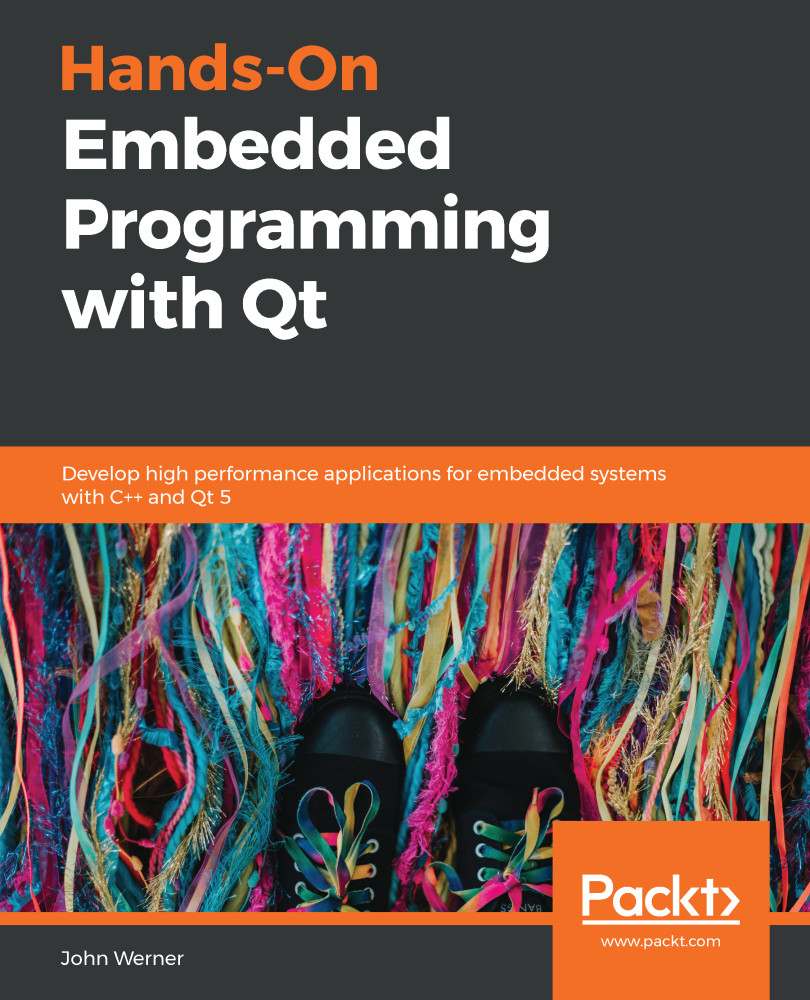The following new requirement has come in: Req 22: The product must integrate with an IoT protocol such as MQTT or KNX.
In Chapter 7, Adding More Features, we looked at how easily Qt makes working with WebSockets; now we are going to take a look at a couple of more specific IoT protocols—MQTT and KNX. Both of these protocols are supported directly in Qt's commercial product, Qt for Automation (see Chapter 8, Qt in the Embedded World), and are made available as a source code extension under the (L)GPL license. Since we are using the (L)GPL version of Qt, we will be building them ourselves.




































































